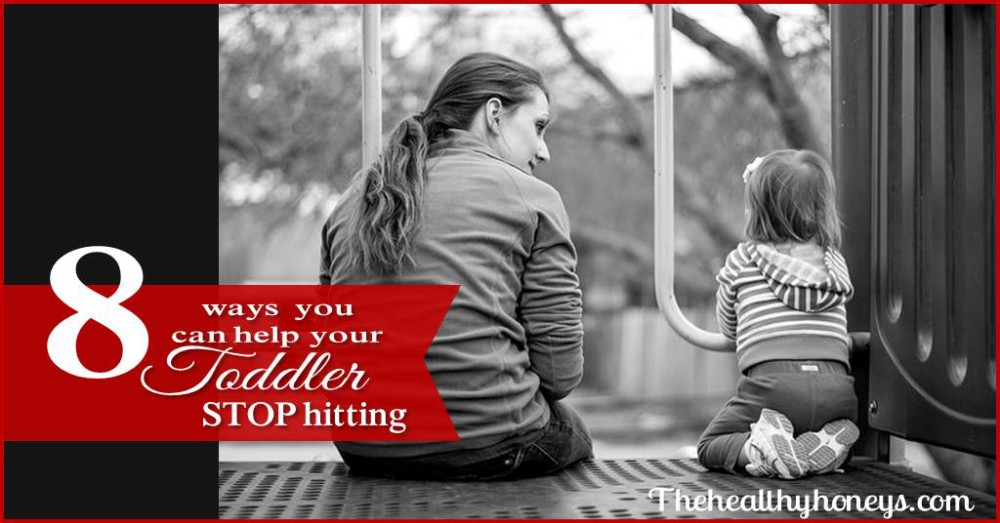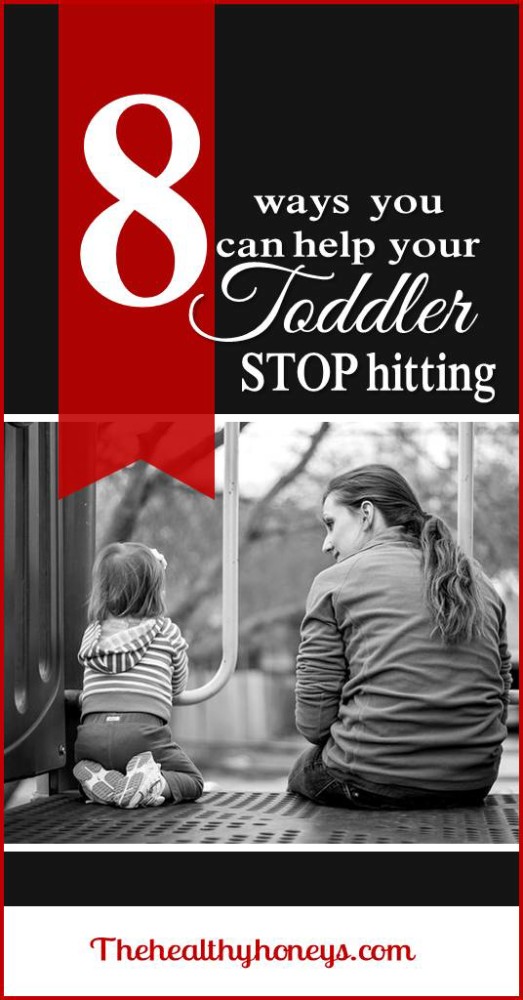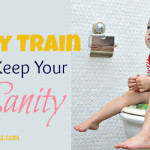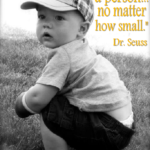
Photo credit (edited slightly) credit
Hitting is a normal developmental stage that many toddlers go through. They have learned they can have a say in getting what they want or need, but have not mastered the proper techniques with which they can influence the world around them. Helping a child stop hitting can be extremely beneficial… especially before they enter Kindergarten. If hitting is carried into school these children may be more likely to experience difficulties and failure in social connections and discipline in school. It is best for the hitting child as well as the children they will be around to help them learn better ways of associating.
What are some great ways to get your toddler to stop hitting?
Start Early
Don’t waste time thinking that your child will grow out of hitting. They may, but if they don’t aggressive behavior is much more difficult to fix in a 12-year-old than a 3-year-old. Have faith in your child. Children are extremely smart and can learn very well when dealt with in empathetic and loving ways. If you believe your child can learn and are willing to be patient and diligent in teaching them, they can master social skills necessary to prevent hitting.
Limit Screen Time
It doesn’t matter what a show is rated it may be important to review to make sure the show is displaying behavior you would want your child to do. It has been shown that children imitate what they see. The more time your child spends watching violence and aggression on shows or video games the more aggressive they will be.
Limit Spanking
Children model behavior they see in adults as well. If as adults we deal with problems by spanking many times this behavior is how our children will deal with the problems they have…(like when another child takes their toy). Research shows that children who are spanked display more aggressive behavior than those who are not.
Use Empathy
When children use aggressive behavior they are trying to deal with something but don’t know the proper way. They are sad if someone takes their toy or is mean to them in some way. Instead of jumping straight to a punishment for their bad behavior, first ask them how they are feeling, then explain how their behavior hurt someone else. It will keep them from feeling like the victim of the situation.
Use Logical Consequences
Love and logic has two great techniques. The “uh oh” song or the energy drain. You can read about these in this awesome book.
Teach Problem Solving Skills
We can’t assume that a child knows how to behave until we have repeatedly shown and taught them proper behavior. Teach your child these techniques:
- How to share
- How to stand in line without touching others
- How to say “please” and “thank you”
- What it looks like to be helpful
- How to comfort someone who is upset
- How to listen
- How to tell others how you feel instead of acting out your feelings by hitting, pushing, etc.
- How to compromise
- How to comfort yourself when you don’t get your way
A great way to teach children is through play.
Reward Positive Behavior
Give the child extra attention when you see positive behavior.
Consult With a Professional
Sometimes aggressive behavior can be caused by emotional problems from family trauma or medical problems. If they seem especially difficult their aggressive behavior may be caused by something else. Visit a therapist, medical doctor, or alternative medicine practitioner.
Like this post? Please share it by:
Pinning it here!







